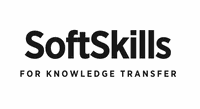KTSoftSkills - Soft Skills for Knowledge Transfer
Erasmus Plus

Funding program: Key Action 2: Cooperation Partnerships in Higher Education – Erasmus +
Funding Agency: Italian National Agency - INDIRE and Co-funded by the European Union
Grant Agreement Number: Project n. 2022-1-IT02-KA220-HED-000089663
Recently, a new assortment of facilities (i.e., co-working and maker spaces, contamination Labs, fab labs, Design Factories, etc.) have been appearing in innovation ecosystem networks to foster open innovation initiatives involving the creation of new knowledge from collaboration partnerships in a way that is nearer to society.
These structures are emerging as interstitial spaces (Villani & Phillips, 2021) created in between the spheres of HEIs, businesses and citizens.
As such, they involve actors coming from different backgrounds with diverging interests, goals, and skills. However, neither the emergence of these structures nor the promotion of activities that stimulate stronger links among researchers, businesses, and society work alone.
To avoid these efforts ending up in failure or counterproductive iterations that erode collaborative potential, it is relevant to focus on soft skills that support interaction and collaboration while enhancing innovation potential.
These gaps bring about numerous weaknesses in the management of these open-innovation and collaborative activities, avoidable and foreseeable with (a) the necessary training of the KT professionals in charge of them and (b) the awareness about the need for a strategic and aligned approach towards cooperation partnerships.
First, the KT staff involved in the management of those structures is required to develop a wide range of alternative abilities, not at all taken for granted and almost impossible to acquire during traditional training programs.
Second, administrators and managers in charge of KT activities have paid attention mainly to quantitative outcomes metrics such as patents, licenses, spin-out, and research contracts.
Specific training has been organized to enhance the background of KT professionals in this respect.
However, other fundamental soft skills have remained almost unattended at all, even if they are key from a qualitative point of view to reduce cultural, institutional, and cognitive differences between HEIs, business, and societal institutions in general.
Third, improving soft skills for KT makes possible the inclusion of many actors (e.g., SMEs) that would lack the necessary resources and competencies for interacting with HEIs and other institutions, generators of important knowledge to be transferred.
In this sense, the project seeks to create the necessary stock of soft skills (through a specific training program) capable of filling this lack of competencies that KT professionals within HEIs and outside are facing while creating the appropriate institutional awareness and support mechanisms to ensure the alignment of top management and decision-makers.
We believe that this project has inherently a multiplier effect in terms of innovation impact within society at large.
The objectives of the projects could be summarized as follow:
(a) improving KT professionals’ soft skills;
(b) designing a tailored training program for improving KT across Europe;
(c) increasing the awareness about the importance of qualitative output measures for KT.
These specific objectives allow to support civic engagement and participation in KT issues, as well as to foster greater interconnection and inclusiveness among HEIs, by enhancing KT professionals’ skills and critical thinking.
Implementation: To achieve those objectives, the project will implement an investigation activity to better know the needs and benefits of enhancing KT professionals’ soft skills.
The design and validation of the soft skills identified and the self-assessment framework followed.
Then, some activities will focus on the design and pilot-test of the Online KT Soft Skills Training Programme and Toolkit.
Results: The results expected from the project are of different nature.
We will have some quantifiable outputs in the forms of reports and documents, a self-assessment framework online tool, a KT Soft Skills Training Programme, and a Toolkit, all of them free of charge and downloadable from the project website.
Also, we expect impact results in the form of a “new” understanding of the figure of the KT professional, as well as more inclusive and collaborative HEIs, businesses, and institutions in general.
Project partners:
- Department of Management, Alma Mater Studiorum – Università di Bologna (DISA) - Coordinator
- NETVAL (NETVAL) - Italy;
- ASTP Proton (ASTP) - The Netherlands;
- SOPU ACADEMY (SOPU) - Finland;
- THINK COMPANY (THINK) - Finland ;
- JAGIELLONIAN UNIVERSITY (JAG) - Poland
DiSA Team Leader: Prof. Elisa Villani
DISA Team members: Elisa Villani, Rosa Grimaldi, Laura Toschi, Matteo Vignoli, Maria Cecilia Flores
Funding contribution: 400.000 €
Start date: 01/12/2022 - End date: 30/11/2025
Project web site: https://www.ktsoftskills.eu/
Major information: Professoressa Elisa Villani (e.villani@unibo.it)
